#kiosk k67
Explore tagged Tumblr posts
Text
@alien-pants oh my God this is fantastic.
The Continuous Reinvention
What connects Ljubljana, New York and Berlin? A modular, adaptive design system placed there. It is a Kiosk K67, designed by Saša Mächtig.

Kiosk K67 next to the seaside as a tobacco and newspaper stand. | Image © Museum of Architecture and Design MAO, Ljubljana
From 1968 to 1999 have been manufactured around 7,500 units of the K67 all around Yugoslavia. Some of them were also exported to Poland, Japan, New Zealand, Kenya, Iraq, the Soviet Union, and the United States. The system permitted unlimited configurations and variations, therefore is perfect for different types of adaptation and programs. You might find the Kiosk K67 in the collection of the Museum of Architecture and Design MAO in Ljubljana.


The modularity of the K67 design offers different types of adaptations | Image © Museum of Architecture and Design MAO, Ljubljana
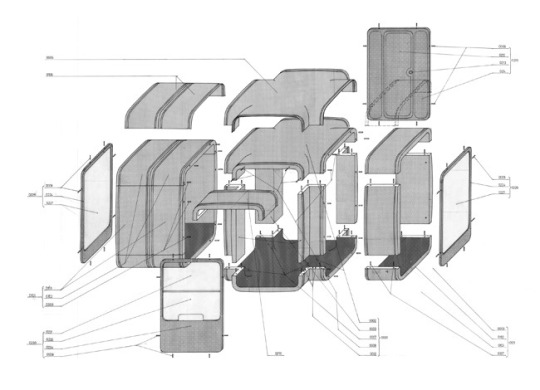
Axonometric drawing of the second generation of the K67 from 1972. | Image © Museum of Architecture and Design MAO, Ljubljana

System Kiosk K67, expansion options and combinations. | Image © Museum of Architecture and Design MAO, Ljubljana

Kiosk K67 as beehive. | Image © Museum of Architecture and Design MAO, Ljubljana
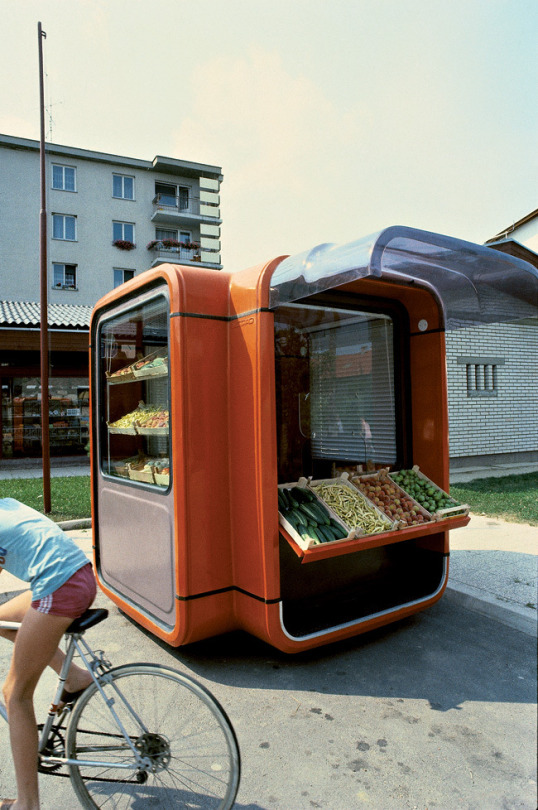
Kiosk K67 as fruit and vegetable stand. | Image © Museum of Architecture and Design MAO, Ljubljana

K67 as an installation by Marjetica Potrč in Modern Gallery Ljubljana. | Photo via Next Stop Kiosk
Kiosk K67 was also adapted for different uses, from border patrol stations, ski lift ticket booths, flower shops, to retail and fast-food stands. And after more than 50 years it is still present and becoming popular in many cities.
The first K67, which became a part of the design collection of MoMA in 1970, was at the beginning set on the 53rd Street sidewalk. It got finally its place in the museum during the MoMA exhibition Toward a Concrete Utopia: Architecture in Yugoslavia, 1948–1980 as an object of mass design.

The installation with K67 at the exhibition in MoMA. | © 2018 The Museum of Modern Art. Photo by Martin Seck
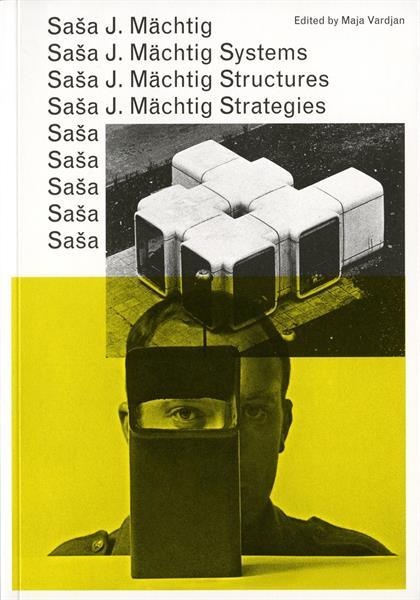
The catalogue from the exhibition Systems, Structures, Strategies in the Museum of Architecture and Design MAO, Ljubljana.
Maja Vardjan, our of the curators of the exhibition Systems, Structures, Strategies in the Museum of Architecture and Design MAO, describes why the K67 is so persistent in many cities. She evaluates it as a piece that with ���its position between architecture and industrial design, embeddedness in the framework of a modern city and society, the rituals of daily life, and, last but not least, its persistent capacity to reinvent itself.”

The reinvention of K67 in Berlin in 2018. | Photo by Marc Brinkmeier
The ability to reinvent itself makes the kiosk fresh in many settings and configurations. Martin Ruge created a kioski in Berlin. He brought one of the K67 although the transportation was difficult and the connection with freshwater, sewage and electricity to the Mykita building took more effort than expected. But he thinks it was worth it. And freshwater, sewage and electricity shall become matter of the new design issues for K67 to solve in the future.
The metamorphosis as a constant change of shape, idea, social and political reality shaped K67 to the point that is again in use. As Maja Vardjan said, a kiosk is phenomena, always alive and never the same.

Kiosk K67 used as kioski bar in Berlin. | Photo by Marc Brinkmeier
3K notes
·
View notes
Text


Cover I illustrated for the summer issue of Outsider magazine #38. It features a small home (based on the famous modular K67 kiosk) being ferried by Vertol 107 helicopter.
Inspired by @thevaultoftheatomicspaceage content.
54 notes
·
View notes
Text

met this guy on a drunk adventure
#kiosk#poland#aesthetic#polska#polish#polishcore#1990s#90s#2000s#1980s#80s#k67#modernism#modernizm#jugokiosk
14 notes
·
View notes
Text
BRC+K67
hey babe meet me at the iconic K67 Modular Kiosk in the hit videogame Bomb Rush Cyberfunk

#original content#bomb rush cyberfunk#Jet set radio#Jet Grind Radio#Video game#K67 kiosk#Modernism#Design#Communism#Soviet#Slovenia
6 notes
·
View notes
Text

K67 is a kiosk design created in 1966 by the Slovenian architect and designer Saša J. Mächtig.
The design is based on polyfibre reinforced modules, which can be used as single units or combined to large agglomerations. It can serve many different functions; throughout its history it has been used for newspaper kiosks, parking-attendant booths, copyshops, market stands, shelter booths, chip stalls, student cafes, and lottery stands. It appears in different colour combinations (red is the most common),[1] and it is easily visible and accessible. The modular design of the units enables the K67 to fit almost any location.
Patented in 1967, K67 was prepared for serial production in 1968 with the first exhibition of prototypes in Ljutomer, Slovenia.[2] It was manufactured by the Imgrad factory in Ljutomer.
3 notes
·
View notes
Text




Saša J. Mächtig / Kiosk K67 / 1965 / Slovenia
_____
source: This article was originally published by Metropolis Magazine as "The Enduring Lives of Saša Machtig's Modular Creations."
©︎ Museum of Architecture & Deisgn, Ljubijana
https://www.archdaily.com/806346/the-story-of-the-1960s-mass-produced-modular-design-that-actually-went-into-production
3 notes
·
View notes
Text

kiosk k67 dj set
me and my homie from urban planning
lovely weather and good vibes
i drank 3 beers
0 notes
Text
Throughout former Yugoslavia and the Eastern Bloc, futuristic and brightly colored kiosks began to emerge as hot dog stands, flower shops, currency exchanges, ticket booths, and more. The seminal K67 model, devised by Slovenian designer Saša J. Mächtig, spurred numerous other designs around the region. The modules are constructed of reinforced fiberglass and were conceived as single units that could be linked together to create larger clusters.
Over time, as the kiosks have aged and weathered, they have been gradually abandoned or removed. A new book, Kiosk: The Last Modernist Booths Across Central and Eastern Europe, celebrates these tiny urban icons, featuring more than 150 examples photographed by David Navarro and Martyna Sobecka.


Photos by David Navarro & Martyna Sobecka / Zupragrafika

In ‘Kiosk,’ Visit the Tiny Disappearing Urban Shops of Eastern Europe
510 notes
·
View notes
Text
0 notes
Text










Opatija, Kiosk (nicht K67) auf einem Hinterhof, eine dolle Foto- Idee von Lillet und einige Impressionen aus Ferienwohnung und vom Bier ŠC bzw. andersrum, sogar Blumen würden angeschafft in der Markthalle mit den Japan- Preisen, der Markt in Rijeka war da viel besser, dafür die Busfahrt dorthin sehr nervig.
Opatija im Juli 2023
0 notes
Text
Utopia K67
In his novel Blindness Jose Saramago narrate a story of a plague that affects the city so the encounters between inhabitants become increasingly frightening. The immense absurdity of the capital development of the contemporary city recalls Saramago's apocalyptic vision of the development affected by an epidemic of white blindness.
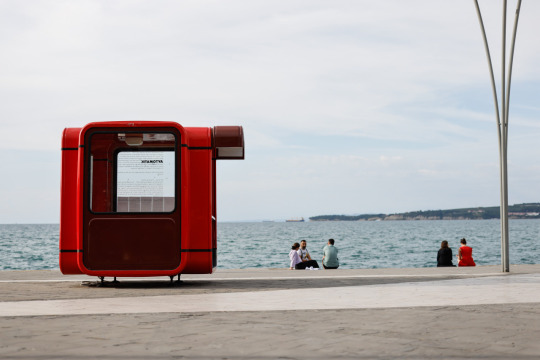
How will we live together when public spaces are sold out? The story is a parable of the fear of the unknown - is it war, isolation or just the fear of being to close to each other?
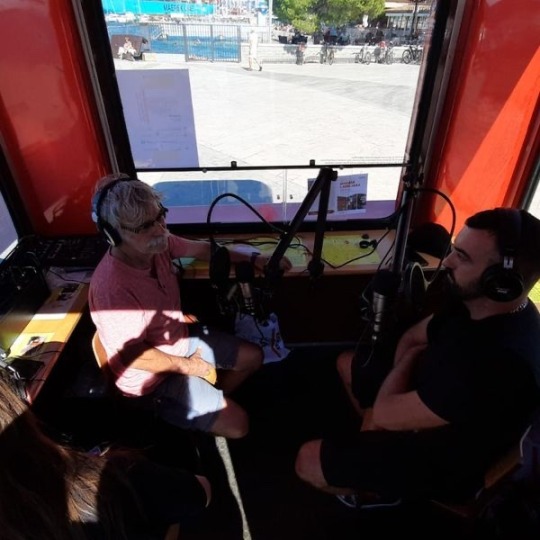
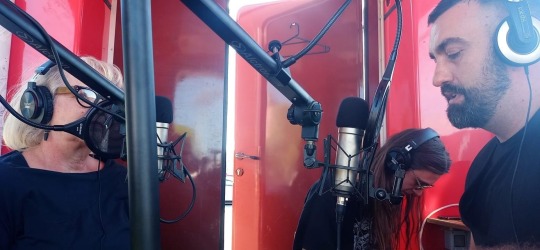
Public talks in K67 with local cultural and political figures transmitted live on-air of Independent Coastal Radio NOR.
The utopia starts in projects that are going beyond the expected rules. It points out the neuralgic problems of the location and seeks the analysis of the current state of matter. One of the utopias stands in a small Slovenian coastal town Koper - in a public square where a parking lot is situated on the most prominent position next to the sea.
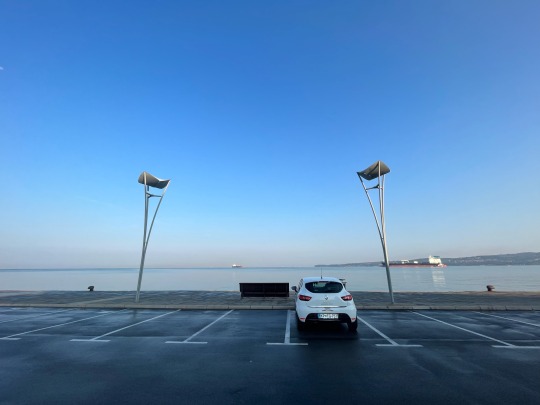
The utopia - K67 kiosk, designed by Saša Mächtig in 1967, concludes its story with the absurdity of the use of the public square next to the sea in favor of parking. As the writer and journalist Martin Reichert, to whom we dedicated this project, would say, “it is a parking lot with the most beautiful view in the world."
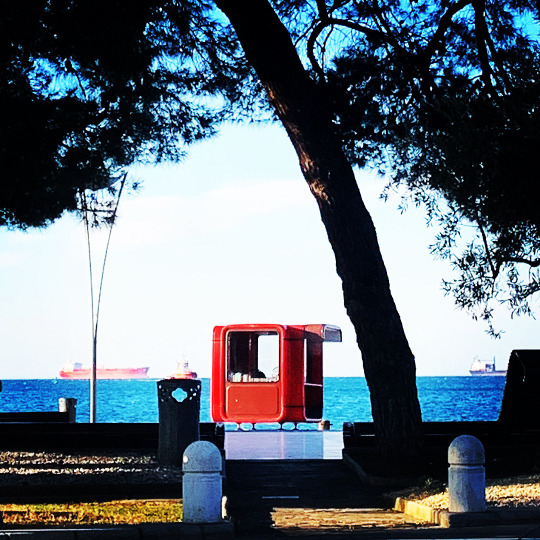
K67 is one of the best examples of design during the former Yugoslavia. In the context of the presentation in the public space, with the help of the owner Coastal Galleries Piran, it was placed on the square in Koper in December 2021, in order to become a new generator for its urban content.
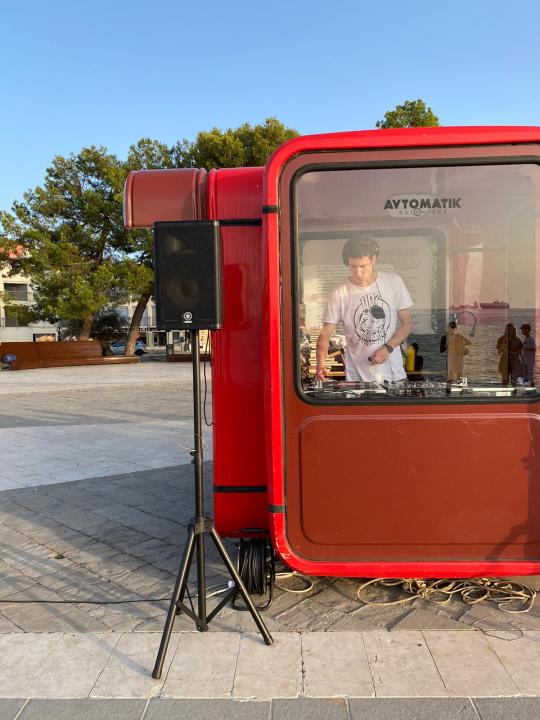
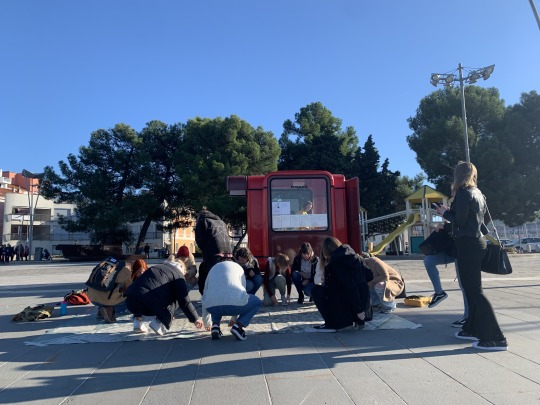
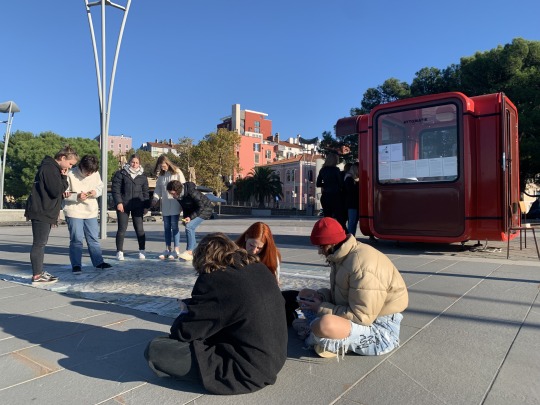
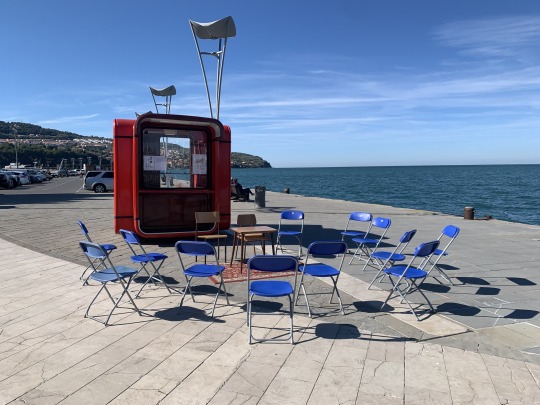
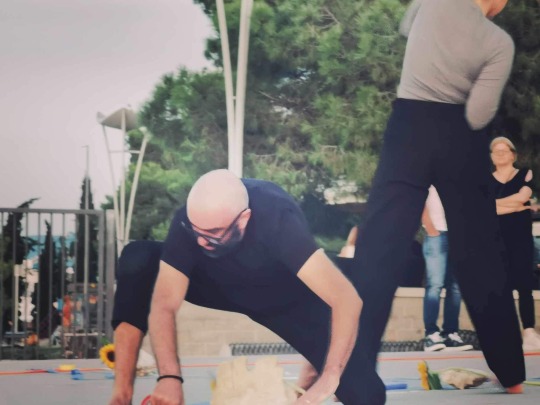
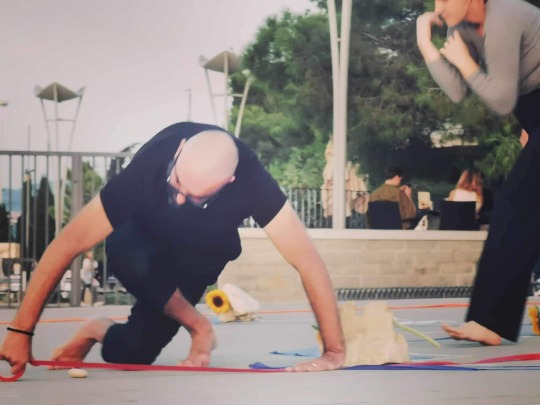
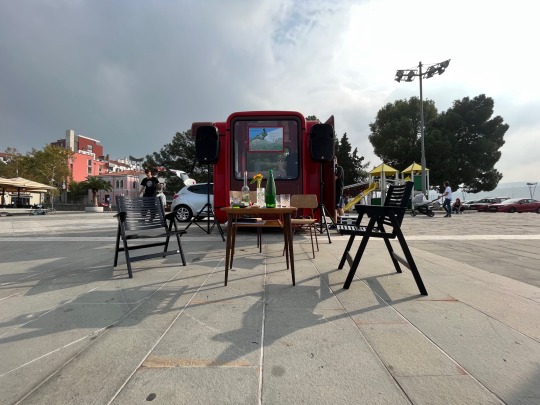
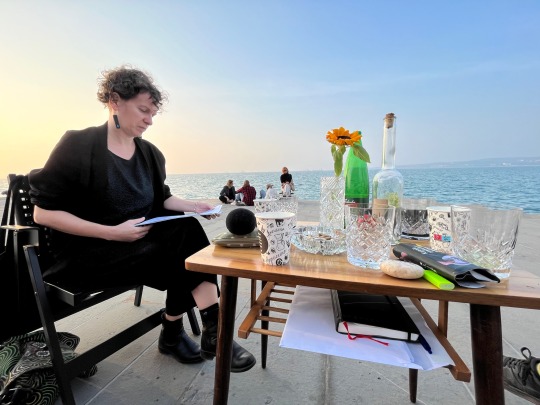
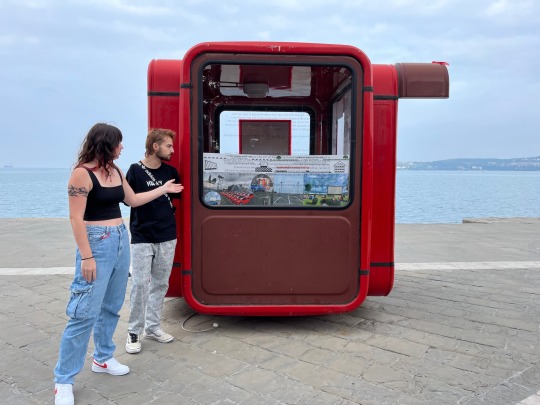
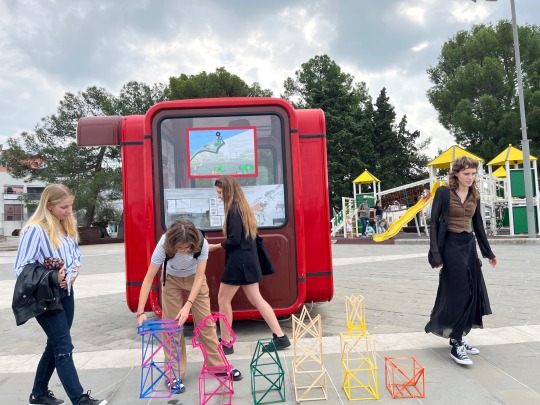
youtube
From spring to late autumn 2023, a process of tactical and performative urbanism took part in the K67 in favour to create an inclusive public space. The main concept proposed and elaborated within the municipality was based on the change of the current parking lot on the square into a green community space.
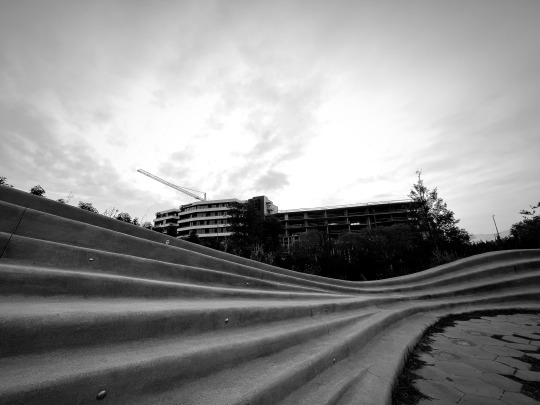
Unfinished project Solis was more than ten years a failure of a PPP concept. After COVID the investor succeeded to add two more floors of the private apartments.
Tactical urbanism is the opposite of investment urbanism, which has a dispersed structure of activity in space and builds various, mainly residential buildings that sell well, but without a well-thought-out placement in the context of the city. The last plan for Koper was signed by the architect Edo Mihevc in the 1960s.
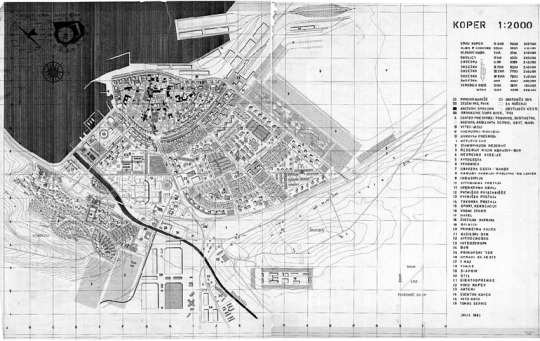
Urban Plan for Koper, Edo Mihevc (1961). | Source © Neža Čebron Lipovec
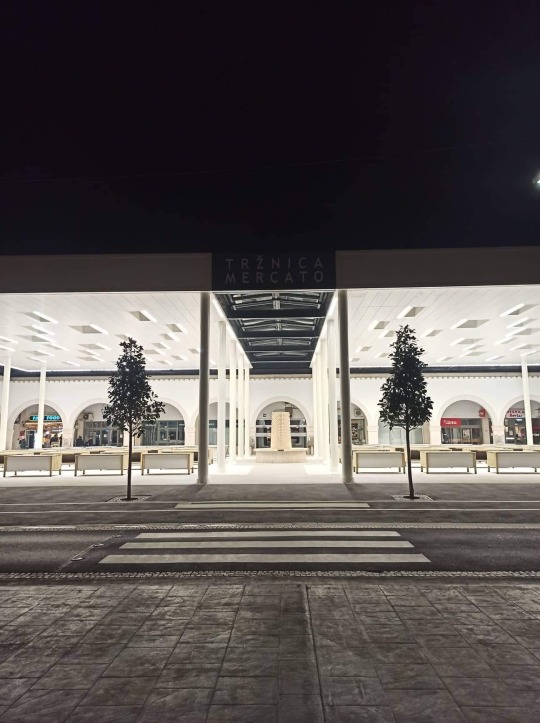
The renovation of the new roof for the city market was executed via the municipality but without a public competition.
Today it looks like investor urbanism is much faster than the concept of town planning per se. This results in a fact that there is no more urban planning in the city of Koper today.
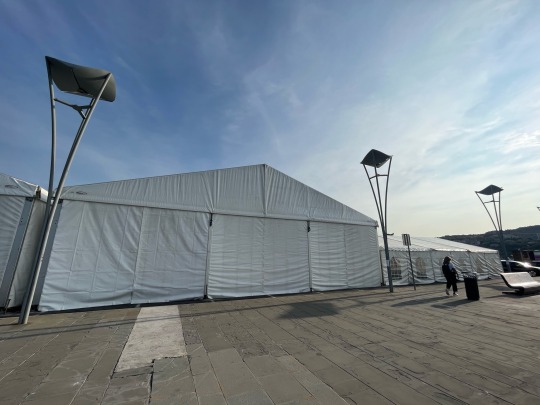
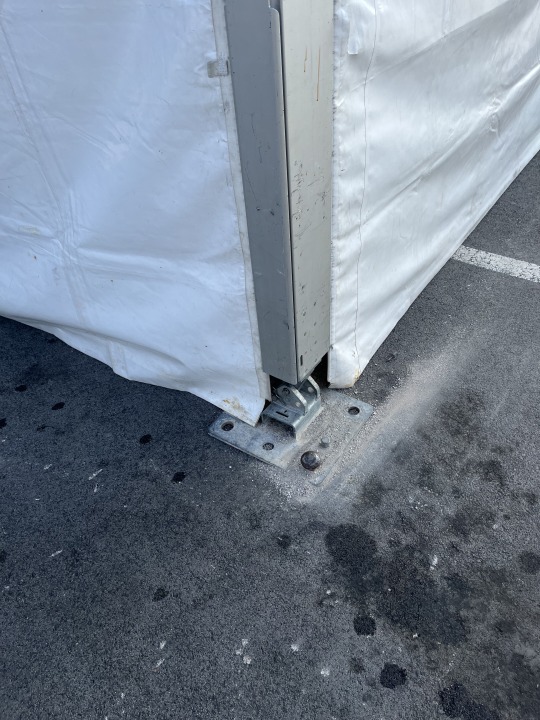
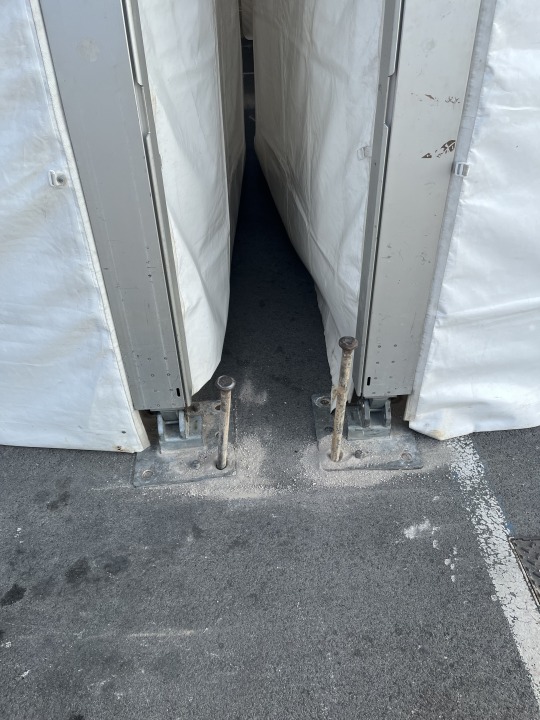
The farm market with live animals in plastic tent on Ukmarjev square shows the discrepancy of communication between the municipality and experts.
In Koper as in other towns across the Adriatic coast there is an obvious pressure from investor urbanism. Public spaces are mostly touristized, privatized and don’t belong to dwellers anymore. Therefore is important to ensure that buildings are not built without public competitions. The K67 stays a reminder of a utopia that shall make aware of the importance of reuse and creation of community spaces.
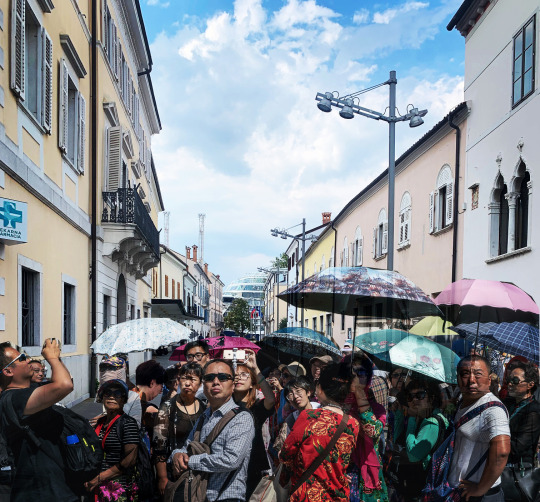
The cruise ships don't need to pay tax in Koper so instead of Venice, were are banned are welcomed for a pollution of cruise tourism.

The utopia K67 is dedicated to the writer and journalist Martin Reichert.
29 notes
·
View notes
Text

Kiosk K67 in fog
9 notes
·
View notes
Photo

K67
from 8787.
10 notes
·
View notes
Photo

14 notes
·
View notes
Photo

#k67#trafika#red#crveno#crvena#vojvodina#kiosk#serbia#srbija#architecture#arhitektura#Saša Mächtig#corner#cosak
57 notes
·
View notes
